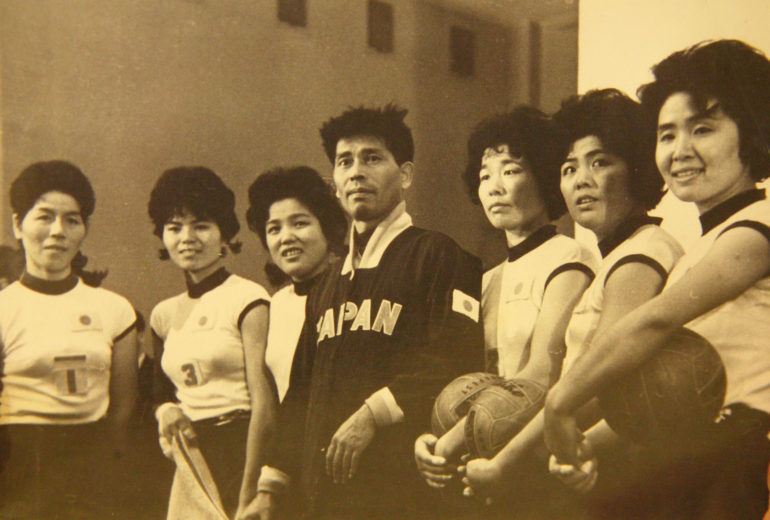I’ve been covering the East Asia Film Festival Ireland for the past few days. It’s been a blast. A particular thrill I get is seeing films I normally would never see. Never has this point been made more prominent than with the latest film I saw. The Witches of the Orient is a documentary about the 1964 Japanese Olympic volleyball team. They were given this auspicious title because when they were playing they were magic.
The film opens with the introduction of the remaining members of the team. I say remaining because unfortunately some of them have passed away. We see them around a table reminiscing about the good times and catching each other up with what is going in their respective lives. As the film goes on we get snapshots of their lives now after moving on from volleyball and it’s beautiful. They define themselves through the lessons they learned as a team as well as they everlasting bonds they made while a part of that team.
It’s a kind of magic
What makes The Witches of the Orient so impressive as a film is it can be watched by anyone of any background. Whether you’re into sports or not this film has everything for you. For the history buffs, this is a fascinating lesson not just about the 1964 Olympics but also the Japanese people, more on that later. There is also a moving story at the centre of all this about determination and how the women this film is centred around are made of pure willpower. To achieve what they achieved and to endure what they endured takes supernatural abilities.
I could not tear myself away from this film it was so engaging. When the film showcases the team as they do battle on the court the director, Julien Faraut mixes a combination of visual elements to highlight the intensity and wonder of volleyball.
For example, during the film the visuals change to anime. It’s fascinating. It enhances the already intense volleyball matches, as well as the off the court action. Another example involves the introduction of each player. When each one appears onscreen their stats, poistion and nickname are shown much like a trading card would show these features off for collectors. It’s another commendable visual choice that Faraut makes.
Driven beyond Dignity
The story of these women, these warriors reflects what Japan was going through in the late 50s and heading into the 60s. These women had to show incredible willpower and determination to survive. This is similar to how Japan was trying to rebuild itself and remain strong in the eyes of the other nations around the world. Both went through hell.
With Japan, it was World War II, with this team it was their intense and punishing training to become the unbeatable team they became. The personification of their ordeal came in the shape of their coach. His nickname was the Demon due to his insane training regime that would require them to work out for hours and would regularly bring them to tears.
And when the 1964 Olympics were to be held in Japan it was up to these women to make their country proud and to show the world who they were. The level of pressure they were under was excruciating and between the film seamlessly splicing between footage from the event and the intense anime you feel every bit of the action.
The Witches of the Orient is a story about a group of women who held the hopes and dreams of their country in their hands. It’s rare to say it this early but I may have found the film of the festival.
If my review has interested you be sure and head over to the IFI website and pick yourself up a ticket. Stay tuned to Scannain for more news, reviews and interviews.

